The 25 Best Albums of 2024 So Far
Career-defining turns from some of the world's brightest pop and rap acts, stop-you-in-your-tracks debuts, multi-hour masterpieces, our first 10/10-reviewed album in 16 years, and a handful of era-defining Americana releases have encapsulated the last six months of music.
Music Features Best Albums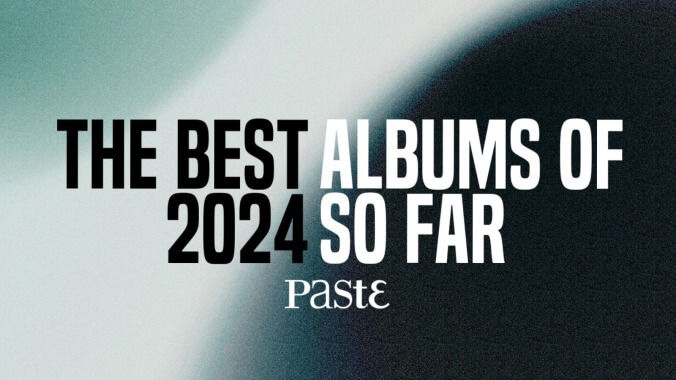
Every June, we poll the Paste music crew about the best albums of the year so far. It’s a great way to present our favorites to you, but also to each other. This year, that included excellent, career-defining turns from some of the world’s brightest pop and rap acts, multi-hour masterpieces, our first 10/10-reviewed album in 16 years and a handful of era-defining Americana releases. This is a snapshot of our favorite LPs that came out between January and June, and our year-end list will likely look much different. We’re alphabetizing this installment, and come December we’ll settle the score numerically like always. But let us know in the comments which release has been your favorite, and tell us which LPs should be on our radar for the next six months. Now, without further ado, here are our picks for the 25 best albums of 2024 so far.
Adrianne Lenker: Bright Future (4AD)
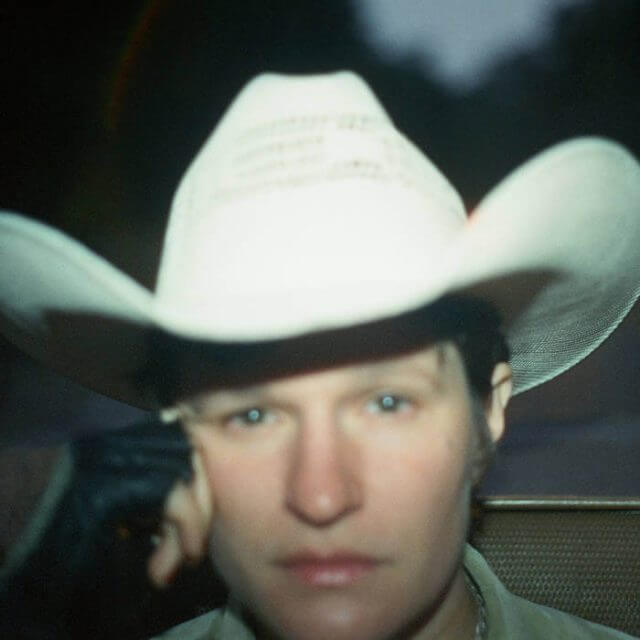 The varying strength of relationships in Adrianne Lenker’s life thread many of Bright Future’s dozen songs together. On the breezy “Fool,” she imagines all sorts of lives she might live with someone else—“we could be friends, you could love me through and through.” She also makes a laundry list of what the people in her circle are up to, as if she plays the role of a mutual friend catching you up to speed with a warm temperament. You don’t have to know who Tommy is, but he had twins, and in that moment, you can just share the joy Lenker gives off as she tells you that. “Fool” is followed quickly by “No Machine,” a song most noticeable for how distinct her delivery of “I don’t know what I’d do without you” is. Lenker’s voice becomes decidedly sweeter, but it also carries the weight of someone about to burst into tears. The bond she shares with whoever she’s written the song about feels fundamental to her life, but not so specific that you can’t find parallels in your own—which is the undeniable, always-present treasure of her work in the first place. Bright Future is an album that, while often hushed in tone, is deeply emotionally complex—thanks to Lenker’s songwriting style. Her music is deeply human, often placing great focus on humanity itself. She’s able to imbue even our most mundane feelings and experiences with a renewed allure just by taking them seriously. Her masterpiece, it asks us through a demonstration of grace to lean on each other and extend versions of our own. Sometimes, it feels like she’s creating these beautiful, lived-in worlds that exist only while the song is playing. The beautiful truth of it, though, is that the only magical world Adrianne Lenker writes about is the one we all live in together. —Eric Bennett [Read our full cover story]
The varying strength of relationships in Adrianne Lenker’s life thread many of Bright Future’s dozen songs together. On the breezy “Fool,” she imagines all sorts of lives she might live with someone else—“we could be friends, you could love me through and through.” She also makes a laundry list of what the people in her circle are up to, as if she plays the role of a mutual friend catching you up to speed with a warm temperament. You don’t have to know who Tommy is, but he had twins, and in that moment, you can just share the joy Lenker gives off as she tells you that. “Fool” is followed quickly by “No Machine,” a song most noticeable for how distinct her delivery of “I don’t know what I’d do without you” is. Lenker’s voice becomes decidedly sweeter, but it also carries the weight of someone about to burst into tears. The bond she shares with whoever she’s written the song about feels fundamental to her life, but not so specific that you can’t find parallels in your own—which is the undeniable, always-present treasure of her work in the first place. Bright Future is an album that, while often hushed in tone, is deeply emotionally complex—thanks to Lenker’s songwriting style. Her music is deeply human, often placing great focus on humanity itself. She’s able to imbue even our most mundane feelings and experiences with a renewed allure just by taking them seriously. Her masterpiece, it asks us through a demonstration of grace to lean on each other and extend versions of our own. Sometimes, it feels like she’s creating these beautiful, lived-in worlds that exist only while the song is playing. The beautiful truth of it, though, is that the only magical world Adrianne Lenker writes about is the one we all live in together. —Eric Bennett [Read our full cover story]
Beth Gibbons: Lives Outgrown (Domino)
 If you arrive at Lives Outgrown looking for something that sounds like Portishead, you might find your thirst briefly satiated by “Floating on a Moment”—but it’s only a slight parallel. The song is melancholic yet enchanting, as Beth Gibbons finds herself trapped in a purgatory of middle-age—the prosperous hope of the future suddenly feels dimmer, and retrospect snaps itself back into place with a much less graceful ferocity. Lives Outgrown achieves a wondrous feat of relatability—even if what inspired these songs are not universal feelings. Gibbons’ splendor is her innate ability to make our own experiences feel denser and louder. When she sings about the timing never being right “when you’re losing a soul” on “Burden of Life,” anyone who has confronted the monstrous clamors of grief may feel it deeply. Gibbons likens her response to lostness to pebbles holding court on a shoreside, to understanding why generations dwindle. “I used to feel the feelings,” she admits, over the strums of her own acoustic guitar and Lee Harris’ percussive thrums. “Love that I once said I’d never rile.” Gibbons’ first solo record is embroidered with raw, cherished instrumentation that duets with open spaces. It is sometimes beautiful, sometimes jagged and worrisome. —Matt Mitchell [Read our full review]
If you arrive at Lives Outgrown looking for something that sounds like Portishead, you might find your thirst briefly satiated by “Floating on a Moment”—but it’s only a slight parallel. The song is melancholic yet enchanting, as Beth Gibbons finds herself trapped in a purgatory of middle-age—the prosperous hope of the future suddenly feels dimmer, and retrospect snaps itself back into place with a much less graceful ferocity. Lives Outgrown achieves a wondrous feat of relatability—even if what inspired these songs are not universal feelings. Gibbons’ splendor is her innate ability to make our own experiences feel denser and louder. When she sings about the timing never being right “when you’re losing a soul” on “Burden of Life,” anyone who has confronted the monstrous clamors of grief may feel it deeply. Gibbons likens her response to lostness to pebbles holding court on a shoreside, to understanding why generations dwindle. “I used to feel the feelings,” she admits, over the strums of her own acoustic guitar and Lee Harris’ percussive thrums. “Love that I once said I’d never rile.” Gibbons’ first solo record is embroidered with raw, cherished instrumentation that duets with open spaces. It is sometimes beautiful, sometimes jagged and worrisome. —Matt Mitchell [Read our full review]
Charli XCX: BRAT (Atlantic)
 On BRAT, Charli XCX is once again channeling her experiences into radical, bite-sized pop songs. It makes CRASH feel even more like an aberration, drawing way closer from the forthright nature of how i’m feeling now. BRAT, though, is messy and vulnerable—in a way Charli’s work has lacked over the last decade. Her own framing positions the album as a club record, written as though she’s spouting these songs off via drunk texts to a friend. That last part is unambiguously true, right down to the sentence case titling. BRAT is a love letter to the sounds of electroclash (think Ed Banger Records, Peaches, Uffie). Though BRAT is, at every moment, an album about Charli XCX’s feelings, it’s important to note that not all of those feelings are raw. There’s the ebullient “Club classics,” a song that exists both within and outside the club, building alongside her anticipation for a night out. There’s the bold and, well, bratty “Von dutch,” a self-obsessed and deliriously fun romp so good that its second-verse-same-as-the-first structure isn’t reductive. Much like when a song’s chorus is so good you find yourself hoping they’ll do it one more time, all of “Von dutch” is that good. By all means, repeat it! There’s the icy, disaffected cool of “360,” an all-timer in her catalog already—where Charli absolutely floats over a simple but thrilling beat from Cook and Cirkut. Its video is packed with It Girls like Chloe Sevigny, Rachel Sennott and Alex Consani, as are its lyrics. There’s no reason that a song whose chorus namedrops Julia Fox should work so well, but it just does! —Eric Bennett [Read our full review]
On BRAT, Charli XCX is once again channeling her experiences into radical, bite-sized pop songs. It makes CRASH feel even more like an aberration, drawing way closer from the forthright nature of how i’m feeling now. BRAT, though, is messy and vulnerable—in a way Charli’s work has lacked over the last decade. Her own framing positions the album as a club record, written as though she’s spouting these songs off via drunk texts to a friend. That last part is unambiguously true, right down to the sentence case titling. BRAT is a love letter to the sounds of electroclash (think Ed Banger Records, Peaches, Uffie). Though BRAT is, at every moment, an album about Charli XCX’s feelings, it’s important to note that not all of those feelings are raw. There’s the ebullient “Club classics,” a song that exists both within and outside the club, building alongside her anticipation for a night out. There’s the bold and, well, bratty “Von dutch,” a self-obsessed and deliriously fun romp so good that its second-verse-same-as-the-first structure isn’t reductive. Much like when a song’s chorus is so good you find yourself hoping they’ll do it one more time, all of “Von dutch” is that good. By all means, repeat it! There’s the icy, disaffected cool of “360,” an all-timer in her catalog already—where Charli absolutely floats over a simple but thrilling beat from Cook and Cirkut. Its video is packed with It Girls like Chloe Sevigny, Rachel Sennott and Alex Consani, as are its lyrics. There’s no reason that a song whose chorus namedrops Julia Fox should work so well, but it just does! —Eric Bennett [Read our full review]
Chelsea Wolfe: She Reaches Out To She Reaches Out To She (Loma Vista Recordings)
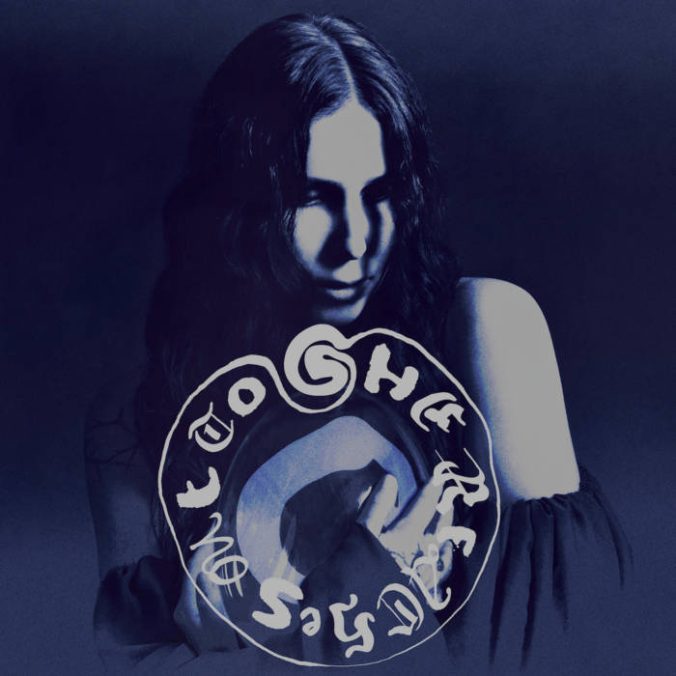 This theme of rebirth mirrors the album’s story as much as Chelsea Wolfe’s own musical journey. She Reaches Out To She Reaches Out To She perfectly blends her back catalog, reflecting on her cyclical life journey throughout and reviving the best genre influences from her past efforts. This cherry-picked combination finds her occupying an inky swell of electro-pop with flourishes of her heavier works—Hiss Spun and Abyss. Each track exists as an individual grave—a memento mori of Wolfe’s past let go through the music she makes. You might be trapped in the graveyard, but the memories remain buried, only allowing you to reflect on the changes you’ve made. As industrial as it is spiritual, Wolfe’s particular brand of trip-hop finds the perfect blend between the carnal and the mystical. She Reaches Out To She Reaches Out To She finds Wolfe at her most creative while reviving her particular, audacious and revered brand of dark storytelling. Every piece of the record finds a way to tie into the themes at its core while still pushing Wolfe’s own sound forward in earnest. Without her intoxicating vocal prowess, the nuance of torment laced in each line would be lost—and she holds an extraordinary dynamic power in the space between hope and despair. There’s no mistaking that Wolfe’s subconscious is a labyrinth we are all trying to map a path through, but listeners will be happy getting stuck in the shadowy corners for now. —Olivia Abercrombie [Read our full feature]
This theme of rebirth mirrors the album’s story as much as Chelsea Wolfe’s own musical journey. She Reaches Out To She Reaches Out To She perfectly blends her back catalog, reflecting on her cyclical life journey throughout and reviving the best genre influences from her past efforts. This cherry-picked combination finds her occupying an inky swell of electro-pop with flourishes of her heavier works—Hiss Spun and Abyss. Each track exists as an individual grave—a memento mori of Wolfe’s past let go through the music she makes. You might be trapped in the graveyard, but the memories remain buried, only allowing you to reflect on the changes you’ve made. As industrial as it is spiritual, Wolfe’s particular brand of trip-hop finds the perfect blend between the carnal and the mystical. She Reaches Out To She Reaches Out To She finds Wolfe at her most creative while reviving her particular, audacious and revered brand of dark storytelling. Every piece of the record finds a way to tie into the themes at its core while still pushing Wolfe’s own sound forward in earnest. Without her intoxicating vocal prowess, the nuance of torment laced in each line would be lost—and she holds an extraordinary dynamic power in the space between hope and despair. There’s no mistaking that Wolfe’s subconscious is a labyrinth we are all trying to map a path through, but listeners will be happy getting stuck in the shadowy corners for now. —Olivia Abercrombie [Read our full feature]
Cindy Lee: Diamond Jubilee (Realistik Studios)
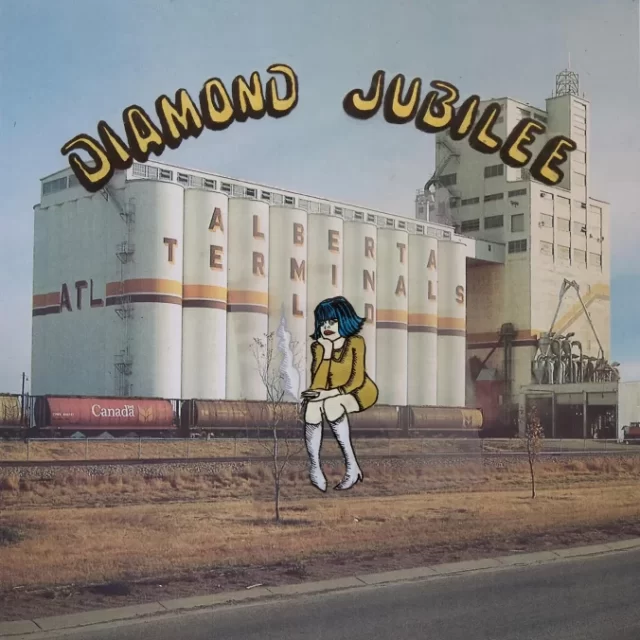 Throughout its two hours of music, there are moments on Cindy Lee’s Diamond Jubilee where instrumentation will be either recorded or manipulated to sound like it’s coming from the other room, if not another gauzy galaxy, only for the sound quality to change suddenly, jutting out at you. “If You Hear Me Crying” on the second “disc” does this beautifully, shifting from sunshine pop bounce to what sound like muted, sarangi-accompanied passages, all bulldozed by a day-glo guitar break in a matter of a minute. This melding of influences and styles produces some of the record’s most daring turns—notably where “Flesh and Blood”’s percussive intro throbs until a dam breaks into sustained synth textures, a bass-driven groove and wordless backing vocals. Only adding to the shambolic charm, the song notably speeds up or slows down at certain points, as if it’s careening on railroad tracks, propelling itself into an outro of more pronounced cymbal crashes and even more crunchy, psychedelic shredding. Diamond Jubilee will overwhelm you, there’s no getting around that. The sheer volume of what Patrick Flegel has created willfully takes up space, and it’s expected that the listener will have to wrestle with something of this scope, even as they’re wowed by what they’re hearing. But again, there’s something thrilling now about that type of challenge, when so much is so easily digestible. Even if the Cindy Lee project doesn’t exist in its current form by the time this upcoming tour is over, it won’t really matter—their masterwork, beamed down from another world, will always feel out of time and, therefore, feel at home in any given moment. The album’s sprawl has no beginning and no end. It’s just a question of when or where you’re ready to join it. —Elise Soutar [Read our full review]
Throughout its two hours of music, there are moments on Cindy Lee’s Diamond Jubilee where instrumentation will be either recorded or manipulated to sound like it’s coming from the other room, if not another gauzy galaxy, only for the sound quality to change suddenly, jutting out at you. “If You Hear Me Crying” on the second “disc” does this beautifully, shifting from sunshine pop bounce to what sound like muted, sarangi-accompanied passages, all bulldozed by a day-glo guitar break in a matter of a minute. This melding of influences and styles produces some of the record’s most daring turns—notably where “Flesh and Blood”’s percussive intro throbs until a dam breaks into sustained synth textures, a bass-driven groove and wordless backing vocals. Only adding to the shambolic charm, the song notably speeds up or slows down at certain points, as if it’s careening on railroad tracks, propelling itself into an outro of more pronounced cymbal crashes and even more crunchy, psychedelic shredding. Diamond Jubilee will overwhelm you, there’s no getting around that. The sheer volume of what Patrick Flegel has created willfully takes up space, and it’s expected that the listener will have to wrestle with something of this scope, even as they’re wowed by what they’re hearing. But again, there’s something thrilling now about that type of challenge, when so much is so easily digestible. Even if the Cindy Lee project doesn’t exist in its current form by the time this upcoming tour is over, it won’t really matter—their masterwork, beamed down from another world, will always feel out of time and, therefore, feel at home in any given moment. The album’s sprawl has no beginning and no end. It’s just a question of when or where you’re ready to join it. —Elise Soutar [Read our full review]
claire rousay: sentiment (Thrill Jockey)
 The pop that claire rousay constructs on sentiment may sound infinitely different than that which often gets labeled “pop,” but the faint outlines of song structures and deep, affective resonance tie it to pop as it’s understood today. Perhaps its closest relative might be the bedroom work of Orchid Tapes, who often utilized at-home production, found sound and experimental techniques with which to chart an emotional dialogue within fluid structures. sentiment makes perfect sense as pop in a context where the immersive compositions of Foxes In Fiction, the diaristic entries of Blithe Field and the extremities of katie dey are all understood as working with pop’s glorious and bendable toolbox. sentiment approaches such an act of exploration with warped vocals and tender-strummed guitar more than rousay’s albums typically feature, but they’re buttressed with recordings from the field that is her everyday life. There’s a cruelty to one’s self—an urge to secure fleeting moments of emotional security—that rousay narrates throughout sentiment unflinchingly. It’s uncomfortable, but her music often thrives in the uncomfortable. —Devon Chodzin [Read our full review]
The pop that claire rousay constructs on sentiment may sound infinitely different than that which often gets labeled “pop,” but the faint outlines of song structures and deep, affective resonance tie it to pop as it’s understood today. Perhaps its closest relative might be the bedroom work of Orchid Tapes, who often utilized at-home production, found sound and experimental techniques with which to chart an emotional dialogue within fluid structures. sentiment makes perfect sense as pop in a context where the immersive compositions of Foxes In Fiction, the diaristic entries of Blithe Field and the extremities of katie dey are all understood as working with pop’s glorious and bendable toolbox. sentiment approaches such an act of exploration with warped vocals and tender-strummed guitar more than rousay’s albums typically feature, but they’re buttressed with recordings from the field that is her everyday life. There’s a cruelty to one’s self—an urge to secure fleeting moments of emotional security—that rousay narrates throughout sentiment unflinchingly. It’s uncomfortable, but her music often thrives in the uncomfortable. —Devon Chodzin [Read our full review]
Ducks Ltd.: Harm’s Way (Carpark)
 Harm’s Way is frenetic and warm, seamless yet meticulous. Tom McGreevy and Evan Lewis wrote the album while on tour opening for bands like Nation of Language and Archers of Loaf, and the bustling, spacious instrumentation mirrors that period of travel and of new stages in new cities. Recalling the work Ducks Ltd. did on their 2021 LP Modern Fiction, McGreevy and Lewis are unabashedly content with recycling licks and offering no solutions to the anguish they sing about. They aren’t making nihilistic music, instead engaging with stories that tug on hope yet don’t ignore the dreariness of it all. And it can be easy to overlook that push-and-pull, given that Harm’s Way lingers in its own jitteriness and wants you to feel first, think next. It’s what makes songs like The Smiths’s “This Charming Man” or Orange Juice’s “Rip It Up” timeless, this propulsive, aching urge to play fast, sing about being bruised and, most of all, juxtapose thrashing, explosive tempos with tender, sugary octaves. Harm’s Way is an album about cyclicality written during a cyclical tour spent nursing cross-country exhaustion. Ducks Ltd.’s approach to heaviness sticks out like a sore thumb, as if they intentionally want you to remember that, at its jangly, syrupy core, Harm’s Way is a sad album with no conclusion other than it’s dark outside all the time. They’ve earned this record and these tracks, and their attention to repurposing riffs runs deeper than McGreevy’s vocals or Lewis’ shredding: When you strip away all of the language and percussion and catchiness of Harm’s Way, the sorrow we’re left with sounds the same. —Matt Mitchell [Read our full feature]
Harm’s Way is frenetic and warm, seamless yet meticulous. Tom McGreevy and Evan Lewis wrote the album while on tour opening for bands like Nation of Language and Archers of Loaf, and the bustling, spacious instrumentation mirrors that period of travel and of new stages in new cities. Recalling the work Ducks Ltd. did on their 2021 LP Modern Fiction, McGreevy and Lewis are unabashedly content with recycling licks and offering no solutions to the anguish they sing about. They aren’t making nihilistic music, instead engaging with stories that tug on hope yet don’t ignore the dreariness of it all. And it can be easy to overlook that push-and-pull, given that Harm’s Way lingers in its own jitteriness and wants you to feel first, think next. It’s what makes songs like The Smiths’s “This Charming Man” or Orange Juice’s “Rip It Up” timeless, this propulsive, aching urge to play fast, sing about being bruised and, most of all, juxtapose thrashing, explosive tempos with tender, sugary octaves. Harm’s Way is an album about cyclicality written during a cyclical tour spent nursing cross-country exhaustion. Ducks Ltd.’s approach to heaviness sticks out like a sore thumb, as if they intentionally want you to remember that, at its jangly, syrupy core, Harm’s Way is a sad album with no conclusion other than it’s dark outside all the time. They’ve earned this record and these tracks, and their attention to repurposing riffs runs deeper than McGreevy’s vocals or Lewis’ shredding: When you strip away all of the language and percussion and catchiness of Harm’s Way, the sorrow we’re left with sounds the same. —Matt Mitchell [Read our full feature]
Ekko Astral: pink balloons (Topshelf)
 What sticks out most about pink balloons is Ekko Astral’s commitment to singing like their generation speaks, which is how you get a barn-burning, circuit-breaking masher like “uwu type beat,” where Jael Holzman, like a glitched-out, Kim Deal-like messenger, bemoans learning to love online and the “empty suit guys” who abuse TouchTunes at the bar. But such era-specific language and cultural references never register like they will become outdated as soon as the next wave of slang is built or the next lineage of celebrities grab hold of their 15 minutes of fame. Instead, like all good punk records we’ve been returning to for 40 years, the music of pink balloons comes across like an archive that captures a moment that will, someday, look different but sound the same. While Ekko Astral’s debut record is, in many ways, a lesson in disruption, it’s also a painfully powerful eulogy of millennial and zoomer language and culture in the face of survival. The balance Holzman, Liam Hughes, Sam Elmore, Guinevere Tully and Miri Tyler settle on is one that thrashes yet never forgets to leave room for grace—because, too often, the world wants to silence you and the world wants to kill you. And, urgently, as the rhythms of pink balloons capsize into a singalong coda, Ekko Astral leave us not with an exclamation point but a necessary ellipsis that, through patience, still manages to knock the door clean off its hinges. —Matt Mitchell [Read our full Best of What’s Next feature]
What sticks out most about pink balloons is Ekko Astral’s commitment to singing like their generation speaks, which is how you get a barn-burning, circuit-breaking masher like “uwu type beat,” where Jael Holzman, like a glitched-out, Kim Deal-like messenger, bemoans learning to love online and the “empty suit guys” who abuse TouchTunes at the bar. But such era-specific language and cultural references never register like they will become outdated as soon as the next wave of slang is built or the next lineage of celebrities grab hold of their 15 minutes of fame. Instead, like all good punk records we’ve been returning to for 40 years, the music of pink balloons comes across like an archive that captures a moment that will, someday, look different but sound the same. While Ekko Astral’s debut record is, in many ways, a lesson in disruption, it’s also a painfully powerful eulogy of millennial and zoomer language and culture in the face of survival. The balance Holzman, Liam Hughes, Sam Elmore, Guinevere Tully and Miri Tyler settle on is one that thrashes yet never forgets to leave room for grace—because, too often, the world wants to silence you and the world wants to kill you. And, urgently, as the rhythms of pink balloons capsize into a singalong coda, Ekko Astral leave us not with an exclamation point but a necessary ellipsis that, through patience, still manages to knock the door clean off its hinges. —Matt Mitchell [Read our full Best of What’s Next feature]
Friko: Where we’ve been, Where we go from here (ATO Records)
 Friko’s debut album moves at an unexpected pace, transitioning from visceral high-energy tracks to subdued ballads seamlessly. Niko Kapetan and Bailey Minzenberger’s penchant for theatrical emotion makes these adjustments feel natural and warranted in context of telling the greater emotional story of the songs. The band is known for their spirited live performances, a quality that pervades the unrestrained anthems on the album. “Crashing Through” whips listeners into a rowdy and distorted introduction saturated with ringing guitars and pounding percussion; Kapetan’s subdued vocals feel whispered in the verses, creating an effect of distance and aloofness that contrasts the noisy and unbridled instrumentals at the beginning and end of the track. Raucous and jeering guitar riffs conclude the track, appearing in red, incendiary bursts similar to the end of “Statues,” in which the hard-hitting track falls into a gritty cacophony of distortion and noise. Where we’ve been, Where we go from here leaves you breathless, and the duo’s unbridled approach to songwriting and instrumentation creates striking and emotive tracks that expand lavishly. —Grace Ann Natanawan [Read our full feature]
Friko’s debut album moves at an unexpected pace, transitioning from visceral high-energy tracks to subdued ballads seamlessly. Niko Kapetan and Bailey Minzenberger’s penchant for theatrical emotion makes these adjustments feel natural and warranted in context of telling the greater emotional story of the songs. The band is known for their spirited live performances, a quality that pervades the unrestrained anthems on the album. “Crashing Through” whips listeners into a rowdy and distorted introduction saturated with ringing guitars and pounding percussion; Kapetan’s subdued vocals feel whispered in the verses, creating an effect of distance and aloofness that contrasts the noisy and unbridled instrumentals at the beginning and end of the track. Raucous and jeering guitar riffs conclude the track, appearing in red, incendiary bursts similar to the end of “Statues,” in which the hard-hitting track falls into a gritty cacophony of distortion and noise. Where we’ve been, Where we go from here leaves you breathless, and the duo’s unbridled approach to songwriting and instrumentation creates striking and emotive tracks that expand lavishly. —Grace Ann Natanawan [Read our full feature]
Hannah Frances: Keeper of the Shepherd (Ruination Record Co.)
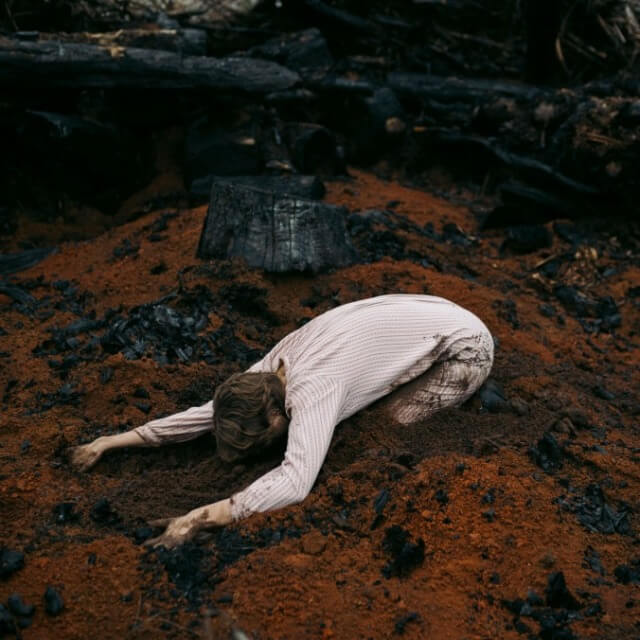 Hannah Frances’ fifth album just gets better and better with every single listen. The Chicagoan’s songwriting sticks to you like glue, and songs like “Bronwyn,” “Husk” and “Vacant Intimacies” are so pensive and full of solemn conviction that you’d be remiss to not engage with it at every waking moment. Keeper of the Shepherd sounds like a rebirth, which makes sense, given that these songs arrived in the wake of a three-years-long prolific period of songs written after the sudden loss of her father. The question lingering beneath the surface of Keeper of the Shepherd: Where do we go once we’ve said goodbye to our grief? In Frances’ words: “I cannot be here without me.” The days of her summery folk plucking have fallen by the wayside, as her work on Keeper of the Shepherd embraces a more off-kilter country sound tightened up by Western arpeggios and jangly, metallic set dressings of vignette instrumentation summoned to soundtrack musings on ecological imagery and mythological archetypes. All of these elements come together to define Frances’ own metamorphosis—her shedding of misery in the name of finding transcendence that is both personal and cosmic. “Birthed by returning to the ruins,” she beckons; Keeper of the Shepherd sketches healing into the shapes of empty hands, hollow homes and vacant intimacies. —Matt Mitchell
Hannah Frances’ fifth album just gets better and better with every single listen. The Chicagoan’s songwriting sticks to you like glue, and songs like “Bronwyn,” “Husk” and “Vacant Intimacies” are so pensive and full of solemn conviction that you’d be remiss to not engage with it at every waking moment. Keeper of the Shepherd sounds like a rebirth, which makes sense, given that these songs arrived in the wake of a three-years-long prolific period of songs written after the sudden loss of her father. The question lingering beneath the surface of Keeper of the Shepherd: Where do we go once we’ve said goodbye to our grief? In Frances’ words: “I cannot be here without me.” The days of her summery folk plucking have fallen by the wayside, as her work on Keeper of the Shepherd embraces a more off-kilter country sound tightened up by Western arpeggios and jangly, metallic set dressings of vignette instrumentation summoned to soundtrack musings on ecological imagery and mythological archetypes. All of these elements come together to define Frances’ own metamorphosis—her shedding of misery in the name of finding transcendence that is both personal and cosmic. “Birthed by returning to the ruins,” she beckons; Keeper of the Shepherd sketches healing into the shapes of empty hands, hollow homes and vacant intimacies. —Matt Mitchell
Hurray for the Riff Raff: The Past Is Still Alive (Nonesuch)
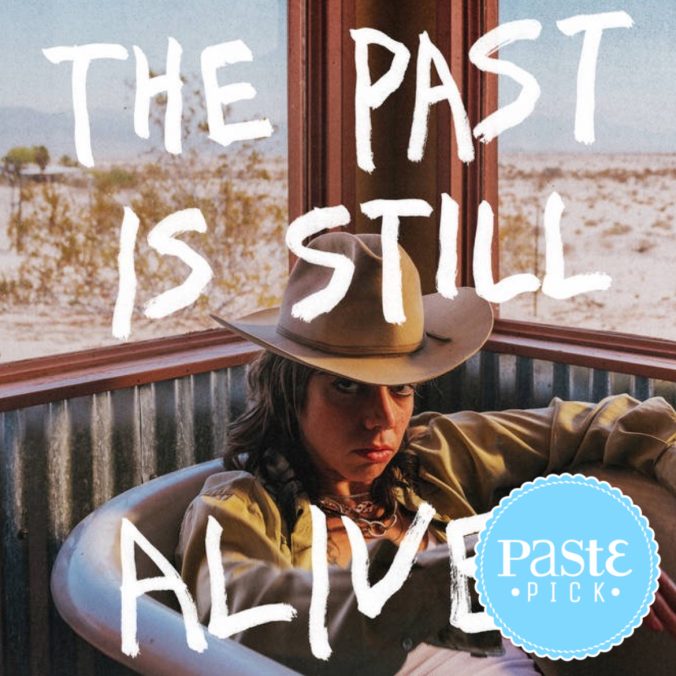 The Past Is Still Alive returns to the folk sounds of Hurray for the Riff Raff’s earliest work, with an electric rock current and a focus on solidarity among the oppressed—as well as a community around Alynda Segarra that includes Meg Duffy, Anjimile, SG Goodman, Phil and Brad Cook and Conor Oberst. The album opens with “Alibi,” rooted in love and defiance and addressed to an addict. Segarra has often explored the complicated rites of loving, particularly loving those on the edge, and on “Alibi” they pair this with a reminder of the need to take care of yourself. Kind but firm, it seems a direct response to the casual drug use and self-destruction of The Navigator’s “Living in the City”: “You don’t have to die if you don’t want to die.” The Navigator painted addiction as a kind of symbol, a symptom of city suffocation that its leading character Navita had to escape. A few years out and stripped of the veneer of a concept album, The Past Is Still Alive confronts it directly, and focuses on finding an answer. This is a theme that runs through The Past Is Still Alive—feeling doomed, but finding the will to keep going anyway. Segarra has confessed to fearing their lived experiences were too much for the music industry, too real to take center stage in their work, but on this album, they buck those fears with radical honesty. What’s particularly striking is the lightness Segarra delivers desperate lines with. In their hands, the trauma of the present day is a prelude to the possibilities of a better tomorrow. —Annie Parnell [Read our full cover story]
The Past Is Still Alive returns to the folk sounds of Hurray for the Riff Raff’s earliest work, with an electric rock current and a focus on solidarity among the oppressed—as well as a community around Alynda Segarra that includes Meg Duffy, Anjimile, SG Goodman, Phil and Brad Cook and Conor Oberst. The album opens with “Alibi,” rooted in love and defiance and addressed to an addict. Segarra has often explored the complicated rites of loving, particularly loving those on the edge, and on “Alibi” they pair this with a reminder of the need to take care of yourself. Kind but firm, it seems a direct response to the casual drug use and self-destruction of The Navigator’s “Living in the City”: “You don’t have to die if you don’t want to die.” The Navigator painted addiction as a kind of symbol, a symptom of city suffocation that its leading character Navita had to escape. A few years out and stripped of the veneer of a concept album, The Past Is Still Alive confronts it directly, and focuses on finding an answer. This is a theme that runs through The Past Is Still Alive—feeling doomed, but finding the will to keep going anyway. Segarra has confessed to fearing their lived experiences were too much for the music industry, too real to take center stage in their work, but on this album, they buck those fears with radical honesty. What’s particularly striking is the lightness Segarra delivers desperate lines with. In their hands, the trauma of the present day is a prelude to the possibilities of a better tomorrow. —Annie Parnell [Read our full cover story]
Jessica Pratt: Here in the Pitch (Mexican Summer)
 Much of Here in the Pitch attempts to reckon with time and all of its charms, disasters and unknowns. Whether that’s done through nods to a post-psychedelic haze on “World on a String,” through horn placements that echo the sounds, sights and ashy hues of the speakeasies that Los Angeles miscreants might have stumbled into four, maybe five decades ago, or lines like “I soon should know what remains / I never was what they called me in the dark / I never was / Here I sit so long”—it’s obvious that Jessica Pratt has never felt more comfortable in her own ambitions, a truth most prominently on display throughout a track like “Get Your Head Out,” which shimmies between the vibes of dimly lit hotel soirées and “in the stars waiting ‘til love’s aligned.” On Here in the Pitch, it’s as if Pratt is walking with us down the Yellow Brick Road, but the cobblestone quakes with bitumen smacked by traces of romance and horror that, on their own can be quite maddening but, here, make for some adventurous, Great American Songbook-worthy shapes. Here in the Pitch is a serenade of our own unique endtimes, packed with rollicking, sugar-sweet verses and vocalizations you can twirl your body to and curl up and anguish over all the same. And, at a mere 27 minutes in length, Pratt wastes no time with us. The whole project is tight as a wire. “It seems it’s all so wonderful inside,” Pratt beckons, slashing through gloom with a wounded olive branch. —Matt Mitchell [Read our full cover story]
Much of Here in the Pitch attempts to reckon with time and all of its charms, disasters and unknowns. Whether that’s done through nods to a post-psychedelic haze on “World on a String,” through horn placements that echo the sounds, sights and ashy hues of the speakeasies that Los Angeles miscreants might have stumbled into four, maybe five decades ago, or lines like “I soon should know what remains / I never was what they called me in the dark / I never was / Here I sit so long”—it’s obvious that Jessica Pratt has never felt more comfortable in her own ambitions, a truth most prominently on display throughout a track like “Get Your Head Out,” which shimmies between the vibes of dimly lit hotel soirées and “in the stars waiting ‘til love’s aligned.” On Here in the Pitch, it’s as if Pratt is walking with us down the Yellow Brick Road, but the cobblestone quakes with bitumen smacked by traces of romance and horror that, on their own can be quite maddening but, here, make for some adventurous, Great American Songbook-worthy shapes. Here in the Pitch is a serenade of our own unique endtimes, packed with rollicking, sugar-sweet verses and vocalizations you can twirl your body to and curl up and anguish over all the same. And, at a mere 27 minutes in length, Pratt wastes no time with us. The whole project is tight as a wire. “It seems it’s all so wonderful inside,” Pratt beckons, slashing through gloom with a wounded olive branch. —Matt Mitchell [Read our full cover story]
Jimmy Montague: Tomorrow’s Coffee (Self-Released)
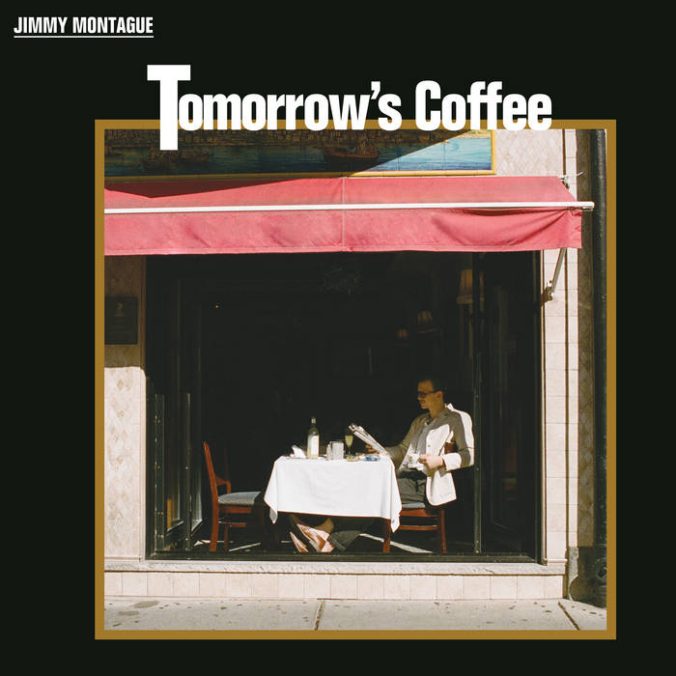 Tomorrow’s Coffee is a project relentless in its own pursuit of stringing together 10 sticky tracks of the like. Good luck finding a crack in this album. The festivities kick off with “Tell You That You’re Right” and its Nick Lowe-style, organ-licked opening melody that explodes into a solo breakdown that puts the focus on rhythm and plenty of it. “No New Starts (For Broken Hearts)” has a certain jingle to it that is the antithesis to anthemic projection, as James Palko muses on goodbyes and fresh beginnings. “Was writing all my fond farewells to ones I used to kiss and tell,” he sings, “on postcards from the corner store when, if only for a moment, had a thoughtful observation that the other side of the line’s been cut.” The song is sublime, euphoric in its own attempts to collage rockabilly and Broadway whimsy—and the “shoo-bop” melody breakdown near the track’s conclusion will make you feel like you’re one of those crooners singing next to a burning trash can in Rocky. “The Smoke After the Kill” sounds like a cigarette after a meal tastes, adopting right-of-the-dial, ageless and liquid rhythms paired with warm harmonies that sound like mid-century session begats and fine-tuned, peculiar pop re-awakenings. It’s the little things that plug Tomorrow’s Coffee with such grace: tropical guitar strums; featherlight percussion pressure points; Palko’s singing, which sounds like it’s coming from inside a white blazer chest pocket. “Only One For Me” is guitar-pop on steroids, punctuated by jazzy harmonics and backing vocals that are so soulful they’ll split you in two. Palko’s work as Jimmy Montague is a mark of formalism unwound, and “No Exit” is anodyne in its kinetic, revelatory devotion to refurbishing abandoned rock detritus. When the 1:30 mark hits on the track, a tenor saxophone solo from Matt Knoedel uncoils while a chooglin’ guitar flourishes delicately in the background. It’s the best musical moment of the year thus far. —Matt Mitchell [Read our full review]
Tomorrow’s Coffee is a project relentless in its own pursuit of stringing together 10 sticky tracks of the like. Good luck finding a crack in this album. The festivities kick off with “Tell You That You’re Right” and its Nick Lowe-style, organ-licked opening melody that explodes into a solo breakdown that puts the focus on rhythm and plenty of it. “No New Starts (For Broken Hearts)” has a certain jingle to it that is the antithesis to anthemic projection, as James Palko muses on goodbyes and fresh beginnings. “Was writing all my fond farewells to ones I used to kiss and tell,” he sings, “on postcards from the corner store when, if only for a moment, had a thoughtful observation that the other side of the line’s been cut.” The song is sublime, euphoric in its own attempts to collage rockabilly and Broadway whimsy—and the “shoo-bop” melody breakdown near the track’s conclusion will make you feel like you’re one of those crooners singing next to a burning trash can in Rocky. “The Smoke After the Kill” sounds like a cigarette after a meal tastes, adopting right-of-the-dial, ageless and liquid rhythms paired with warm harmonies that sound like mid-century session begats and fine-tuned, peculiar pop re-awakenings. It’s the little things that plug Tomorrow’s Coffee with such grace: tropical guitar strums; featherlight percussion pressure points; Palko’s singing, which sounds like it’s coming from inside a white blazer chest pocket. “Only One For Me” is guitar-pop on steroids, punctuated by jazzy harmonics and backing vocals that are so soulful they’ll split you in two. Palko’s work as Jimmy Montague is a mark of formalism unwound, and “No Exit” is anodyne in its kinetic, revelatory devotion to refurbishing abandoned rock detritus. When the 1:30 mark hits on the track, a tenor saxophone solo from Matt Knoedel uncoils while a chooglin’ guitar flourishes delicately in the background. It’s the best musical moment of the year thus far. —Matt Mitchell [Read our full review]
Kali Uchis: ORQUÍDEAS (Geffen)
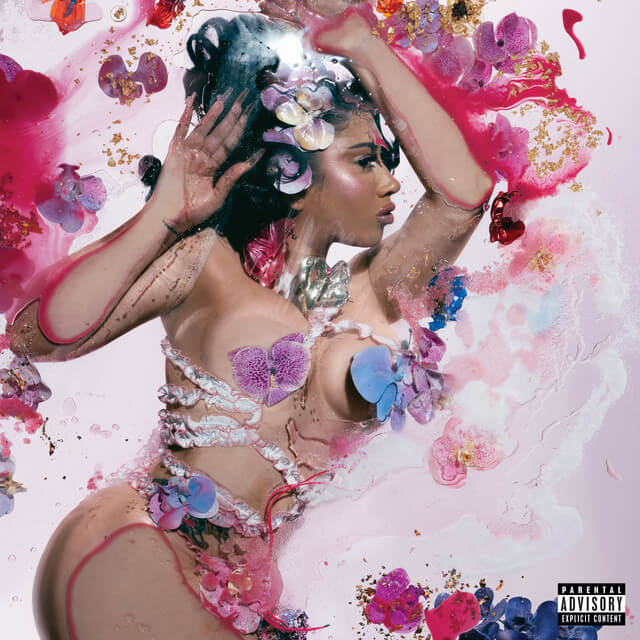 Named after Colombia’s national flower, Orquídeas is a masterful ode to Kali Uchis’ ancestral roots. A project that artfully skywalks across a variety of Latin genres, including dembow, bolero, salsa and reggaeton, the project proves to be her most sonically ambitious to date—and boasts all-star level features to boot. The album’s lead single, the dembow-tinged summer heater “Muñekita,” sees Uchis bring together legendary Dominican rapper El Alfa and the City Girls’ own JT, and she taps Peso Pluma, Mexico’s crown prince of corridos tumbados, for the dreamy, groove-heavy “Igual Que Un Ángel.” Her rap skills are on full display alongside modern Colombian trap legend Karol G on the sapphic-suffused “Labios Mordidos” and she teams up with Puerto Rican reggaeton great Rauw Alejandro for club-ready “No Hay Ley Parte 2,” a remix of her 2022 hit that she first teased during her Coachella set last April. Thematically, Orquídeas is an album that’s refreshingly rose-tinted. Uchis shows off her full vocal range on triumphant bolero self-love anthem “Te Mata” and embraces her own divine feminine on the cosmic “Diosa.” “Pensamientos Intrusivos,” the project’s standout track, unapologetically wears its heart on its sleeve, and the lush, star-crossed elation of “Young Rich & In Love” is as addictive as it is sultry. In an age of increasing social unrest, popular music has grown understandably sober. But that’s what makes a vibrant, romantic project like Orquídeas so rare, so special—and so necessary. —Elizabeth Braaten [Read our full review]
Named after Colombia’s national flower, Orquídeas is a masterful ode to Kali Uchis’ ancestral roots. A project that artfully skywalks across a variety of Latin genres, including dembow, bolero, salsa and reggaeton, the project proves to be her most sonically ambitious to date—and boasts all-star level features to boot. The album’s lead single, the dembow-tinged summer heater “Muñekita,” sees Uchis bring together legendary Dominican rapper El Alfa and the City Girls’ own JT, and she taps Peso Pluma, Mexico’s crown prince of corridos tumbados, for the dreamy, groove-heavy “Igual Que Un Ángel.” Her rap skills are on full display alongside modern Colombian trap legend Karol G on the sapphic-suffused “Labios Mordidos” and she teams up with Puerto Rican reggaeton great Rauw Alejandro for club-ready “No Hay Ley Parte 2,” a remix of her 2022 hit that she first teased during her Coachella set last April. Thematically, Orquídeas is an album that’s refreshingly rose-tinted. Uchis shows off her full vocal range on triumphant bolero self-love anthem “Te Mata” and embraces her own divine feminine on the cosmic “Diosa.” “Pensamientos Intrusivos,” the project’s standout track, unapologetically wears its heart on its sleeve, and the lush, star-crossed elation of “Young Rich & In Love” is as addictive as it is sultry. In an age of increasing social unrest, popular music has grown understandably sober. But that’s what makes a vibrant, romantic project like Orquídeas so rare, so special—and so necessary. —Elizabeth Braaten [Read our full review]
Kim Gordon: The Collective (Matador)
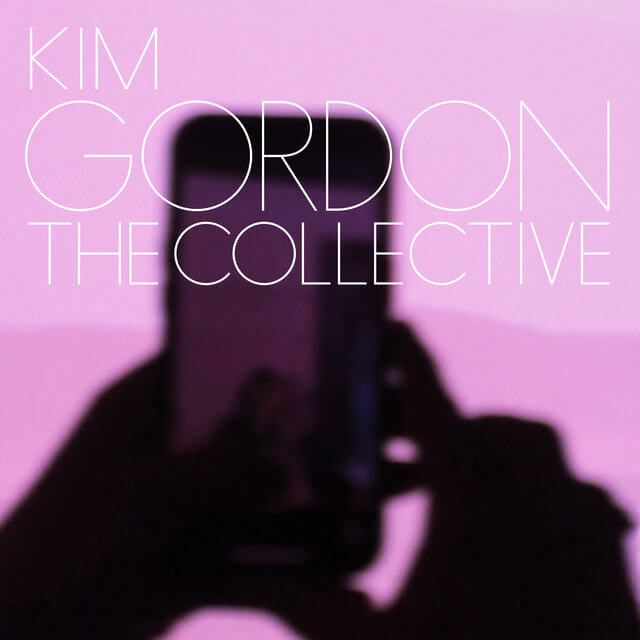 On The Collective, Kim Gordon’s second record for Matador, she extrapolates on one of the myriad ideas present onNo Home Record, the intersection of whisper-rap and hyperreal modernity. Gordon was inspired by The Candy House by Jennifer Egan, a Thouron Scholar, adding a layer of metafiction already entrenched in Egan’s body of work. The Candy House is a sequel to Egan’s previous novel A Visit from the Goon Squad, each chapter focusing on a different character and being written in a different style exploring the fallout of tech companies, the impossibility of authenticity in our current age, and trauma as something we can discard. It’s easy to see why the book sparked a creative urge in Gordon upon first listen. The Collective opens with “BYE BYE,” where Gordon vacantly prattles off a list of chores and a shopping list overtop a trap-industrial beat and what sounds like a car alarm. Gordon’s compelling, enigmatic delivery—coupled with Justin Raisen’s cacophonic production—is hard to resist. The Collective threatens to unravel throughout its entire duration—an anxious, consistent assault on the senses. It’s not an angry record, though; like all good art about modernity, Gordon feels more observational, inhabiting the bodies of many characters, people with AirPods on the train home from work and the oblivious strangers trying to get their attention, peddlers on the street weaponizing small talk and moms who hate their in-laws and are worried for their social media addled teenagers. The album succeeds wholly on its immediacy, and both its soundscapes and directionless lyrics slap you in the face with its message. —Austin Jones [Read our full feature]
On The Collective, Kim Gordon’s second record for Matador, she extrapolates on one of the myriad ideas present onNo Home Record, the intersection of whisper-rap and hyperreal modernity. Gordon was inspired by The Candy House by Jennifer Egan, a Thouron Scholar, adding a layer of metafiction already entrenched in Egan’s body of work. The Candy House is a sequel to Egan’s previous novel A Visit from the Goon Squad, each chapter focusing on a different character and being written in a different style exploring the fallout of tech companies, the impossibility of authenticity in our current age, and trauma as something we can discard. It’s easy to see why the book sparked a creative urge in Gordon upon first listen. The Collective opens with “BYE BYE,” where Gordon vacantly prattles off a list of chores and a shopping list overtop a trap-industrial beat and what sounds like a car alarm. Gordon’s compelling, enigmatic delivery—coupled with Justin Raisen’s cacophonic production—is hard to resist. The Collective threatens to unravel throughout its entire duration—an anxious, consistent assault on the senses. It’s not an angry record, though; like all good art about modernity, Gordon feels more observational, inhabiting the bodies of many characters, people with AirPods on the train home from work and the oblivious strangers trying to get their attention, peddlers on the street weaponizing small talk and moms who hate their in-laws and are worried for their social media addled teenagers. The album succeeds wholly on its immediacy, and both its soundscapes and directionless lyrics slap you in the face with its message. —Austin Jones [Read our full feature]
Mannequin Pussy: I Got Heaven (Epitaph)
 While Mannequin Pussy’s fiery punk is still foundational to the band’s recordings and performances, they’re just as likely to drift into other stylings. One of the band’s most enduring hits, “Drunk II,” inhabits an emo-indie rock interstitial space that has won over fans of both classic indie and heavy music. Now, on I Got Heaven, Mannequin Pussy careens between fast-paced hardcore and contemplative post-punk without sacrificing vitality to fit into any kind of genre mold. The lane that Mannequin Pussy occupies in I Got Heaven is not unlike the the sounds they tested on 2019’s Patience or their 2021 EP Perfect, but there’s a stylistic growth that’s especially potent on “I Don’t Know You:” it is the first Mannequin Pussy song that one could call elegant. It’s hard to believe this is the same Mannequin Pussy that released a self-titled album—a brief and entirely punk foray—10 years ago, given the variety of styles they play and play well. While I Got Heaven has echoes of those humorous moments throughout, the album’s title calls attention to religion, and experiences navigating American Christian hypocrisy are laced throughout. The frenetic punk title track opens in a state of spiritual crisis with Marisa Dabice yelling absurd questions: “And what if we stopped spinning / And what if we’re just flat? / And what if Jesus himself ate my fucking snatch?” Before long, she reaches her dispiriting conclusion: “It is vileness wrapped up and disguised as happy endings.” —Devon Chodzin [Read our full feature]
While Mannequin Pussy’s fiery punk is still foundational to the band’s recordings and performances, they’re just as likely to drift into other stylings. One of the band’s most enduring hits, “Drunk II,” inhabits an emo-indie rock interstitial space that has won over fans of both classic indie and heavy music. Now, on I Got Heaven, Mannequin Pussy careens between fast-paced hardcore and contemplative post-punk without sacrificing vitality to fit into any kind of genre mold. The lane that Mannequin Pussy occupies in I Got Heaven is not unlike the the sounds they tested on 2019’s Patience or their 2021 EP Perfect, but there’s a stylistic growth that’s especially potent on “I Don’t Know You:” it is the first Mannequin Pussy song that one could call elegant. It’s hard to believe this is the same Mannequin Pussy that released a self-titled album—a brief and entirely punk foray—10 years ago, given the variety of styles they play and play well. While I Got Heaven has echoes of those humorous moments throughout, the album’s title calls attention to religion, and experiences navigating American Christian hypocrisy are laced throughout. The frenetic punk title track opens in a state of spiritual crisis with Marisa Dabice yelling absurd questions: “And what if we stopped spinning / And what if we’re just flat? / And what if Jesus himself ate my fucking snatch?” Before long, she reaches her dispiriting conclusion: “It is vileness wrapped up and disguised as happy endings.” —Devon Chodzin [Read our full feature]
Mdou Moctar: Funeral for Justice (Matador)
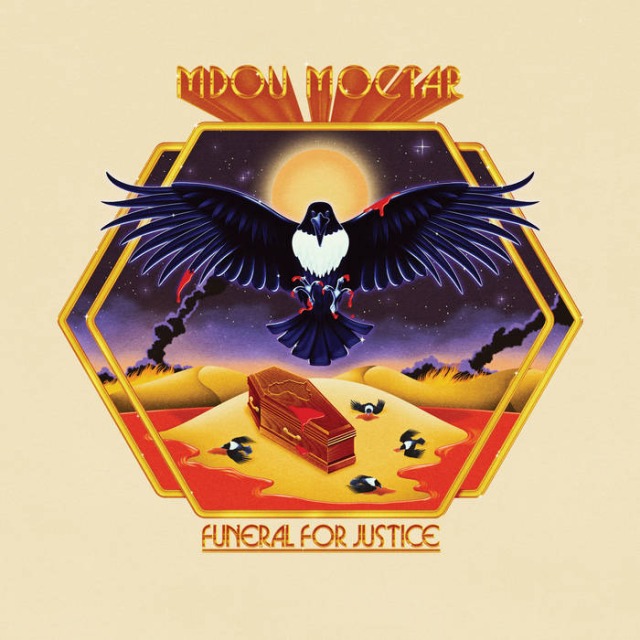 Mdou Moctar uses his guitar to emulate the sound of a siren. During the recording sessions for Funeral for Justice, his band’s latest album, Moctar inched his hand toward the high edge of his lefty fretboard, using his preferred picking hand to instead conjure a burst of wailing noise. Once they wrapped up tracking it, producer and bassist Mikey Coltun was talking to Moctar about why he did that and what he was feeling at that moment. “This is a cry for help,” the guitarist and vocalist told his bandmate. “This is the sound of the siren.” Most of the lyrics for Funeral for Justice are sung in Moctar’s native tongue, Tamasheq, but the messaging of the record rings clear despite any potential language barriers and Mdou Moctar’s growing audience in English-speaking countries. Stacked with countless incandescent guitar solos that erupt like fireworks, there’s an underlying urgency to these songs. The guitar may as well be another one of Moctar’s native languages. It’s a vehicle for his convictions. Funeral for Justice is a roughly 40-minute call to arms with a stalwart anti-colonialist stance. —Grant Sharples [Read our full feature]
Mdou Moctar uses his guitar to emulate the sound of a siren. During the recording sessions for Funeral for Justice, his band’s latest album, Moctar inched his hand toward the high edge of his lefty fretboard, using his preferred picking hand to instead conjure a burst of wailing noise. Once they wrapped up tracking it, producer and bassist Mikey Coltun was talking to Moctar about why he did that and what he was feeling at that moment. “This is a cry for help,” the guitarist and vocalist told his bandmate. “This is the sound of the siren.” Most of the lyrics for Funeral for Justice are sung in Moctar’s native tongue, Tamasheq, but the messaging of the record rings clear despite any potential language barriers and Mdou Moctar’s growing audience in English-speaking countries. Stacked with countless incandescent guitar solos that erupt like fireworks, there’s an underlying urgency to these songs. The guitar may as well be another one of Moctar’s native languages. It’s a vehicle for his convictions. Funeral for Justice is a roughly 40-minute call to arms with a stalwart anti-colonialist stance. —Grant Sharples [Read our full feature]
MIKE & Tony Seltzer: Pinball (10K)
 No rapper has had a recent run quite like MIKE. Starting with Beware of the Monkey in 2022, making a brief stop at Faith is a Rock, his collab with the Alchemist and Wiki, and then stretching into last year’s masterful Burning Desire, the New York City MC’s latest effort, Pinball, continues the momentum. Working with Brooklyn producer Tony Seltzer, MIKE makes slacker rap sound high-stakes. The vibes are immaculate across the 11-track wonderland, with light beats and a streamlined focus on flows. With guest performances from Earl Sweatshirt, Jay Critch and Niontay, Pinball is stunning because of tracks like “On God,” “Skurrr” and “Lethal Weapon,” while deeper cuts like “Underground Kingz,” the title-track and “2k24 Tour” slowburn into progressive, elemental ruminations on dank weed, more money than you’d know what to do with and MIKE’s own talents at the mic. It’s the kind of hubris that works because MIKE’s flaunting of riches feels prolific and worth buying into. MIKE has dropped at least one album a year since 2017; it’s clear that the MC’s apex is a marathon, not a sprint. —Matt Mitchell
No rapper has had a recent run quite like MIKE. Starting with Beware of the Monkey in 2022, making a brief stop at Faith is a Rock, his collab with the Alchemist and Wiki, and then stretching into last year’s masterful Burning Desire, the New York City MC’s latest effort, Pinball, continues the momentum. Working with Brooklyn producer Tony Seltzer, MIKE makes slacker rap sound high-stakes. The vibes are immaculate across the 11-track wonderland, with light beats and a streamlined focus on flows. With guest performances from Earl Sweatshirt, Jay Critch and Niontay, Pinball is stunning because of tracks like “On God,” “Skurrr” and “Lethal Weapon,” while deeper cuts like “Underground Kingz,” the title-track and “2k24 Tour” slowburn into progressive, elemental ruminations on dank weed, more money than you’d know what to do with and MIKE’s own talents at the mic. It’s the kind of hubris that works because MIKE’s flaunting of riches feels prolific and worth buying into. MIKE has dropped at least one album a year since 2017; it’s clear that the MC’s apex is a marathon, not a sprint. —Matt Mitchell
Rachel Chinouriri: What a Devastating Turn of Events (Parlophone)
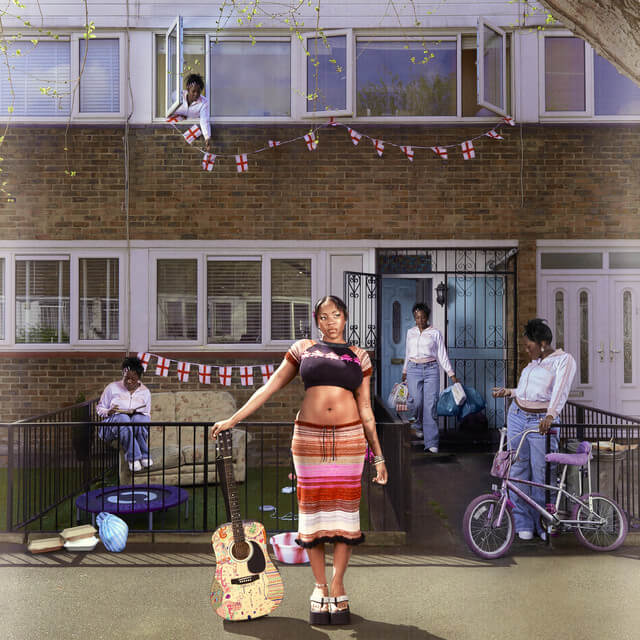 In a year of major pop records that make sweeping yet ultimately lackluster appeals toward confessionalism and vulnerability, the debut LP from British indie-pop newcomer Rachel Chinouriri is the year’s most emotionally and sonically striking coming-of-age concept album. Her music feels deeply personal and relatable without trying to be; its emotional impact never feels overwrought, and is always matched by a varied range of instrumental and production choices and Chinouriri’s engaging, elastic vocals. From the soaring, shoegazey meditation on imposter syndrome and leaving home (“The Hills”), to “Never Need Me,” the cinematic lead single and star-power proof-of-concept pop standout, to Chinouriri’s irreverent Cher Horowitz-inflected monologuing over the whistles and handclaps on “It Is What It Is,” to the breezy bravado on “Dumb Bitch Juice,” to the devastating diva balladry of “Robbed,” What a Devastating Turn of Events establishes Chinouriri as one of the most exciting young stars on the rise. —Grace Robins-Somerville
In a year of major pop records that make sweeping yet ultimately lackluster appeals toward confessionalism and vulnerability, the debut LP from British indie-pop newcomer Rachel Chinouriri is the year’s most emotionally and sonically striking coming-of-age concept album. Her music feels deeply personal and relatable without trying to be; its emotional impact never feels overwrought, and is always matched by a varied range of instrumental and production choices and Chinouriri’s engaging, elastic vocals. From the soaring, shoegazey meditation on imposter syndrome and leaving home (“The Hills”), to “Never Need Me,” the cinematic lead single and star-power proof-of-concept pop standout, to Chinouriri’s irreverent Cher Horowitz-inflected monologuing over the whistles and handclaps on “It Is What It Is,” to the breezy bravado on “Dumb Bitch Juice,” to the devastating diva balladry of “Robbed,” What a Devastating Turn of Events establishes Chinouriri as one of the most exciting young stars on the rise. —Grace Robins-Somerville
Rosali: Bite Down (Merge)
 Any band worth its weight benefits from songs with a strong gravitational pull, and Rosali dishes those out in heaping helpings. Like No Medium before it, Bite Down is packed wall to wall with tunes that are unsettled but unhurried, generous with melody, wandering but never lost, and reliably steady despite the never-ending twists and turns of an earthly existence. But above all, they are beautiful, broken and built around the kind of raw emotional uncertainty that will resonate with anyone who has ever lived, loved and/or lost. To wit, these two stanzas from “Slow Pain,” an unabashed rocker that ends with a 90-second guitar solo and simmers with familiar frustration: “Have you seen my grief? / Hold it so I don’t spill out / Keep quiet and wait it out / My ghosts won’t let me be / Making faces you can’t see /Better go before you’re on to me.” Elsewhere, the album’s highlights include “My Kind,” a kinetic, country-blues stomper that serves as evidence that Rosali is perfectly capable of a Waxahatchee-style arc if she chooses to pursue it, and “Hills on Fire,” a triumph of room-sound atmospherics and squirrelly guitar-isms that feels like watching a lightning storm crawl across a vast flatland, or perhaps childhood trauma streaking through an adult body. And while Bite Down has more approachable peaks, it ends with two tracks that echo both its stylistic range and its recurring themes of pain, self-reflection, healing and hope. First, “Change Is In The Form” builds a Crazy Horse-style crescendo around Rosali’s sing-song ruminations on the impermanence of life, which give way to “May It Be On Offer,” a quiet prayer for restoration and deliverance underpinned by long, droning tones. “There is hope upon me,” Rosali sings, with what sounds like fresh recognition in her voice. “There is reason to try.” Amen, indeed. That hard-won epiphany is the destination and Bite Down is the sound of the journey. We are fortunate Rosali has brought us all along for the ride. —Ben Salmon [Read our full feature]
Any band worth its weight benefits from songs with a strong gravitational pull, and Rosali dishes those out in heaping helpings. Like No Medium before it, Bite Down is packed wall to wall with tunes that are unsettled but unhurried, generous with melody, wandering but never lost, and reliably steady despite the never-ending twists and turns of an earthly existence. But above all, they are beautiful, broken and built around the kind of raw emotional uncertainty that will resonate with anyone who has ever lived, loved and/or lost. To wit, these two stanzas from “Slow Pain,” an unabashed rocker that ends with a 90-second guitar solo and simmers with familiar frustration: “Have you seen my grief? / Hold it so I don’t spill out / Keep quiet and wait it out / My ghosts won’t let me be / Making faces you can’t see /Better go before you’re on to me.” Elsewhere, the album’s highlights include “My Kind,” a kinetic, country-blues stomper that serves as evidence that Rosali is perfectly capable of a Waxahatchee-style arc if she chooses to pursue it, and “Hills on Fire,” a triumph of room-sound atmospherics and squirrelly guitar-isms that feels like watching a lightning storm crawl across a vast flatland, or perhaps childhood trauma streaking through an adult body. And while Bite Down has more approachable peaks, it ends with two tracks that echo both its stylistic range and its recurring themes of pain, self-reflection, healing and hope. First, “Change Is In The Form” builds a Crazy Horse-style crescendo around Rosali’s sing-song ruminations on the impermanence of life, which give way to “May It Be On Offer,” a quiet prayer for restoration and deliverance underpinned by long, droning tones. “There is hope upon me,” Rosali sings, with what sounds like fresh recognition in her voice. “There is reason to try.” Amen, indeed. That hard-won epiphany is the destination and Bite Down is the sound of the journey. We are fortunate Rosali has brought us all along for the ride. —Ben Salmon [Read our full feature]
Rosie Tucker: Utopia Now! (Sentimental Records)
 From the very first line of “All My Exes Live in Vortexes,” Rosie Tucker’s latest LP, Utopia Now!, presents itself as a staggering ridicule of capitalism and a lesson in near-obsolescent economics. “I hope no one had to piss in a bottle at work to get me the thing I ordered on the internet,” they sing, riffing on the Amazon warehouse horror stories that flood our feeds time and time again. Tucker’s first new album in three years stuns at every turn, as the Los Angeles musician combines country-rock and some hues of pop-punk into an indistinguishable shape that stretches vastly and beautifully. Songs like “Gil Scott Albatross” and “Paperclip Maximizer” lend themselves to catchy hooks and circuit-breaking guitar chords. Tucker and their band—Sam Becht, Madi Vogt, Genna Projansky and Wolfy—make good use of their communal talent by blowing the roof off their own power-playing without losing sight of the mission. “And if I turn my life into a treadmill, wrap me in a spreadsheet,” Tucker gleams on the former; “And the shareholders meet gruesome ends, but the cosmos expands so the market survives,” they bemoan on the latter. But all comes to a head on the roaring “Suffer! Like You Mean It,” as Tucker laments being “caught in the craw of a modern malaise” and “splitting hairs for a past time.” This is where the crux of their work shines brightest—in their ability to show their teeth through bittersweet melodies and rich, heavy tempos. “We live forever,” Tucker promises at the end of Utopia Now!, and the work itself corroborates such a future. —Matt Mitchell
From the very first line of “All My Exes Live in Vortexes,” Rosie Tucker’s latest LP, Utopia Now!, presents itself as a staggering ridicule of capitalism and a lesson in near-obsolescent economics. “I hope no one had to piss in a bottle at work to get me the thing I ordered on the internet,” they sing, riffing on the Amazon warehouse horror stories that flood our feeds time and time again. Tucker’s first new album in three years stuns at every turn, as the Los Angeles musician combines country-rock and some hues of pop-punk into an indistinguishable shape that stretches vastly and beautifully. Songs like “Gil Scott Albatross” and “Paperclip Maximizer” lend themselves to catchy hooks and circuit-breaking guitar chords. Tucker and their band—Sam Becht, Madi Vogt, Genna Projansky and Wolfy—make good use of their communal talent by blowing the roof off their own power-playing without losing sight of the mission. “And if I turn my life into a treadmill, wrap me in a spreadsheet,” Tucker gleams on the former; “And the shareholders meet gruesome ends, but the cosmos expands so the market survives,” they bemoan on the latter. But all comes to a head on the roaring “Suffer! Like You Mean It,” as Tucker laments being “caught in the craw of a modern malaise” and “splitting hairs for a past time.” This is where the crux of their work shines brightest—in their ability to show their teeth through bittersweet melodies and rich, heavy tempos. “We live forever,” Tucker promises at the end of Utopia Now!, and the work itself corroborates such a future. —Matt Mitchell
Sarah Shook & the Disarmers: Revelations (Abeyance Records)
 To say that Revelations, the latest record from Sarah Shook & The Disarmers, is a product of survival would be an understatement. Written and recorded in the aftermath of getting sober and receiving a dual diagnosis of ADHD and borderline ASD during the pandemic, Revelations sounds like the kind of album somebody who’s drunk their weight a couple thousand times over and lived to see tomorrow might make. Disarmers bandleader River Shook is many things—nonbinary, atheist, a single parent—and all of that takes a delicate and attentive center-stage on Revelations. With their band—Blake Tallent, Jake Foster, Andrew Lambie and Nick Larimore—they have crafted what is the best record of their career thus far. Revelations is confident and revels in its plainspoken clarity. Musically, it’s an alt-country zenith. Revelations is an outlaw record that considers what it means to be a trans Southerner during a capitalist crisis. It’s a project that is as terminally modern as it is mythically ageless. What gleams at the album’s core is a demand for kindness towards the time it takes to bring joy, clarity and identity into a lifetime. River Shook may be knocking on the door of their 40s, but Revelations sounds like their time here with us has only just begun. —Matt Mitchell [Read our full review]
To say that Revelations, the latest record from Sarah Shook & The Disarmers, is a product of survival would be an understatement. Written and recorded in the aftermath of getting sober and receiving a dual diagnosis of ADHD and borderline ASD during the pandemic, Revelations sounds like the kind of album somebody who’s drunk their weight a couple thousand times over and lived to see tomorrow might make. Disarmers bandleader River Shook is many things—nonbinary, atheist, a single parent—and all of that takes a delicate and attentive center-stage on Revelations. With their band—Blake Tallent, Jake Foster, Andrew Lambie and Nick Larimore—they have crafted what is the best record of their career thus far. Revelations is confident and revels in its plainspoken clarity. Musically, it’s an alt-country zenith. Revelations is an outlaw record that considers what it means to be a trans Southerner during a capitalist crisis. It’s a project that is as terminally modern as it is mythically ageless. What gleams at the album’s core is a demand for kindness towards the time it takes to bring joy, clarity and identity into a lifetime. River Shook may be knocking on the door of their 40s, but Revelations sounds like their time here with us has only just begun. —Matt Mitchell [Read our full review]
This Is Lorelei: Box For Buddy, Box For Star (Double Double Whammy)
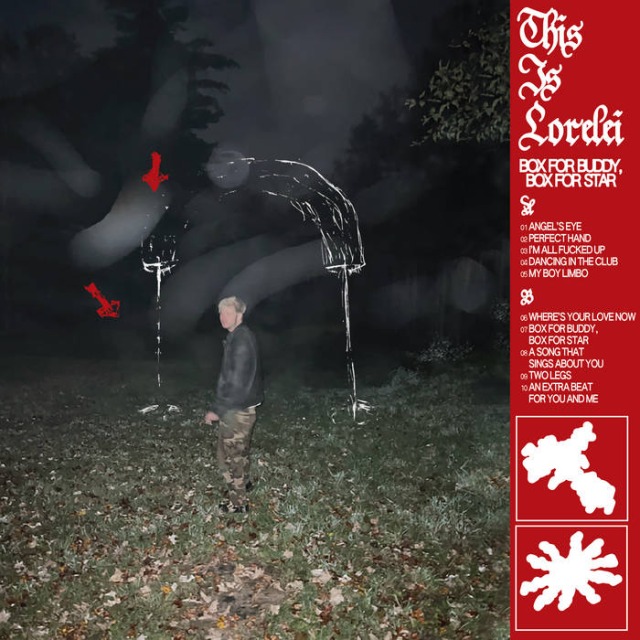 The endless exuberance and unpredictability that define Nate Amos’s style are especially prominent on his latest record, Box For Buddy, Box For Star, where he continues to hone in on his artistic versatility by dialing into a more earnest, singer-songwriter wavelength. In contrast to his earlier work, which is looser and scrappier in construction and concept, the 10-track Box For Buddy is tight and polished yet brims with the same nimble energy as the rest of his formidably abundant discography. Amos is still tinkering with different genres here—namely, mid-Aughts indie rock, folk, country and synth-pop—but he brings a much sharper focus to this material than anything else he’s done. All the pieces of the playground are still there, just a little more renovated. Amos’s straightforward approach results in a record that is both striking in its simplicity and downright seamless in its execution, allowing space for his desire to play around and be vulnerable in a way that he hasn’t before. —Sam Rosenberg [Read our full feature]
The endless exuberance and unpredictability that define Nate Amos’s style are especially prominent on his latest record, Box For Buddy, Box For Star, where he continues to hone in on his artistic versatility by dialing into a more earnest, singer-songwriter wavelength. In contrast to his earlier work, which is looser and scrappier in construction and concept, the 10-track Box For Buddy is tight and polished yet brims with the same nimble energy as the rest of his formidably abundant discography. Amos is still tinkering with different genres here—namely, mid-Aughts indie rock, folk, country and synth-pop—but he brings a much sharper focus to this material than anything else he’s done. All the pieces of the playground are still there, just a little more renovated. Amos’s straightforward approach results in a record that is both striking in its simplicity and downright seamless in its execution, allowing space for his desire to play around and be vulnerable in a way that he hasn’t before. —Sam Rosenberg [Read our full feature]
Vince Staples: Dark Times (Def Jam)
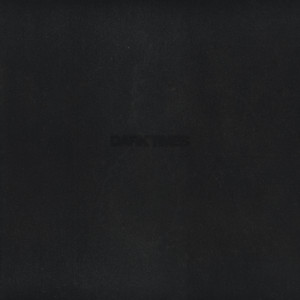 Vince Staples gave us only a few days to prepare for his sixth and latest album, Dark Times. Not only does the 13-track LP run on a perfect loop (a small, missable triumph on a record full of them), but Dark Times is the Long Beach rapper’s final Def Jam album and best work since Big Fish Theory. Even more so, songs like “Nothing Matters” and “Little Homies” are like exclamation points on one of the greatest decades a rap star has ever had—even if Vince continues to hold court as the least-celebrity celebrity around. Featuring samples from the 2014 cut “Blue Suede” and transitions that’ll stop you in your tracks (“Children’s Song” into “Shame on the Devil,” for one), Dark Times is methodical and patient. Vince delivers his bars like there are enough hours in the day. The hook on “Étouffée” is bonkers, and the song might go down as one of his all-time best. But then there’s “Black&Blue” and its Thee Sacred Soul sample, and the no-frills classic “Radio.” Pair Dark Times with the recent successes of his new, self-titled Netflix show, and it’s clear that Vince Staples’ command on our current culture isn’t letting up anytime soon. —Matt Mitchell [Read our full cover story]
Vince Staples gave us only a few days to prepare for his sixth and latest album, Dark Times. Not only does the 13-track LP run on a perfect loop (a small, missable triumph on a record full of them), but Dark Times is the Long Beach rapper’s final Def Jam album and best work since Big Fish Theory. Even more so, songs like “Nothing Matters” and “Little Homies” are like exclamation points on one of the greatest decades a rap star has ever had—even if Vince continues to hold court as the least-celebrity celebrity around. Featuring samples from the 2014 cut “Blue Suede” and transitions that’ll stop you in your tracks (“Children’s Song” into “Shame on the Devil,” for one), Dark Times is methodical and patient. Vince delivers his bars like there are enough hours in the day. The hook on “Étouffée” is bonkers, and the song might go down as one of his all-time best. But then there’s “Black&Blue” and its Thee Sacred Soul sample, and the no-frills classic “Radio.” Pair Dark Times with the recent successes of his new, self-titled Netflix show, and it’s clear that Vince Staples’ command on our current culture isn’t letting up anytime soon. —Matt Mitchell [Read our full cover story]
Waxahatchee: Tigers Blood (Anti-)
 Tigers Blood, in particular, is an album in-conversation with the past, seeking from it lessons that allow us a more peaceful present. On “3 Sisters,” Katie Crutchfield attempts to find alignment between two states—between her slower, smoother present-day and an unsteady past. Like with much of Tigers Blood, Crutchfield doesn’t find an easy middle-ground between the two, but she remains admirably committed to navigating the conflict with a radical, clear-eyed honesty. “Right Back To It,” Tiger Blood’s lead single featuring guitar virtuoso Jake “MJ” Lenderman, is the closest thing the new LP has in terms of a spiritual successor to the album it’s following up. Warm harmonies shared between Lenderman and Crutchfield—as well as pleasingly melodic banjo and guitar melodies—evoke the irresistible charms of Saint Cloud, while clearly baring the rangy, Southern tendencies of Lenderman’s Carolina influence. Despite lyrics alluding to a relentlessly restless mind, the song exudes inner peace, with the past becoming a source of comfort rather than consternation. If Saint Cloud and its lead single “Fire” captured the initial “pink cloud” of sobriety (and all the nervous anticipation that comes with it), then “Right Back To It” showcases the well-earned euphoria that comes from settling in to being clean long-term. But Tigers Blood doesn’t merely represent the natural progression from Saint Cloud or ring in a sober celebration. In fact, it reads as the triumphant culmination of every album Waxahatchee has released up until this point. —Tom Williams [Read our full cover story]
Tigers Blood, in particular, is an album in-conversation with the past, seeking from it lessons that allow us a more peaceful present. On “3 Sisters,” Katie Crutchfield attempts to find alignment between two states—between her slower, smoother present-day and an unsteady past. Like with much of Tigers Blood, Crutchfield doesn’t find an easy middle-ground between the two, but she remains admirably committed to navigating the conflict with a radical, clear-eyed honesty. “Right Back To It,” Tiger Blood’s lead single featuring guitar virtuoso Jake “MJ” Lenderman, is the closest thing the new LP has in terms of a spiritual successor to the album it’s following up. Warm harmonies shared between Lenderman and Crutchfield—as well as pleasingly melodic banjo and guitar melodies—evoke the irresistible charms of Saint Cloud, while clearly baring the rangy, Southern tendencies of Lenderman’s Carolina influence. Despite lyrics alluding to a relentlessly restless mind, the song exudes inner peace, with the past becoming a source of comfort rather than consternation. If Saint Cloud and its lead single “Fire” captured the initial “pink cloud” of sobriety (and all the nervous anticipation that comes with it), then “Right Back To It” showcases the well-earned euphoria that comes from settling in to being clean long-term. But Tigers Blood doesn’t merely represent the natural progression from Saint Cloud or ring in a sober celebration. In fact, it reads as the triumphant culmination of every album Waxahatchee has released up until this point. —Tom Williams [Read our full cover story]
Check back in at the end of November to see which album tops our year-end list, and check out a playlist of our favorite songs from these 25 LPs below.